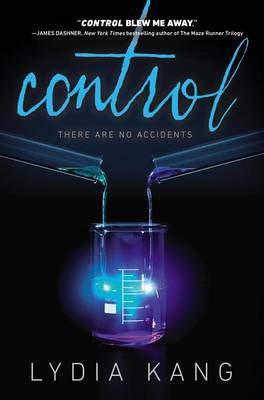Reviewed by Briana @ Pages Unbound on
The story is fast-paced, and the jacket’s claim that it is “unputtdownable*” is not inaccurate, as I could barely bring myself to take a break from reading. Zelia encounters a number of twists in her new life, as she garners increasing knowledge about the society she lives in, about the people who claim to be her friends, and about the people she thinks are her enemies. So many things are not what they at first appear, and Zelia and the readers must continue to dig ever deeper in order to find the truth.
This aspect of the plot actually parallels one of the major themes of the book, which is an emphasis on intelligence and talent rather than physical beauty. Appearance is misleading in a place where people can have four arms or green skin. Zelia, ashamed of her physique and her late blooming, has to grapple with learning to see herself, and others, for who they are, rather than what they look like.
The book also addresses the complexity of relationships, and tackles all types: friendship, family, and romance. Zelia must continually transform her relationships as the people around her grow up or change, and as she discovers new aspects of their personalities or their past. She must realize that loving sometimes means accepting people just as they are, and it sometimes means trusting their ultimate intentions are good, even when their individual actions are perplexing. In the end, she asks others to accept the same about her.
The characters around Zelia are a refreshingly eclectic group, and Kang imagines wonderfully what it might be like to live as a genetic outcast, a “monster” in the eyes of society. Her characters both struggle with, yet accept, their differences. Then they turn them into strengths. Then they try to use them to help others. The most maligned members of society strive to aid the very people who have rejected them, perhaps out of pure goodness, perhaps in hopes they will one day be welcomed. Their situation and their personalities are complex, and Kang shies away from none of it.
Additionally, Kang has received much praise for the accuracy of the medical information in her fiction. My personal expertise is not in medicine, biology, or any related field, so I cannot speak with any professionalism on said accuracy. However, the science presented all sounded reasonable and realistic to me! Additionally, Kang does her audience the favor of assuming they are intelligent and can catch on to the scientific aspects of the plot, rather than overexplaining or oversimplifying the facts for readers.
Control is a smart, gripping read that will appeal to fans of books like Pure by Julianna Baggott and Ender’s Game by Orson Scott Card. Science fiction buffs will appreciate Kang’s serious approach to genetics and medicine, but anyone who appreciates well-written YA with a multifaceted plot and a grown-up tone will enjoy Kang’s work. Definitely a recommended read!
*The spelling on the Goodreads summary is “un-putdownable,” but is definitely “unputtdownable” on my book jacket.
Reading updates
- Started reading
- 2 January, 2014: Finished reading
- 2 January, 2014: Reviewed
